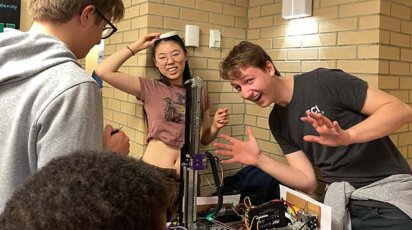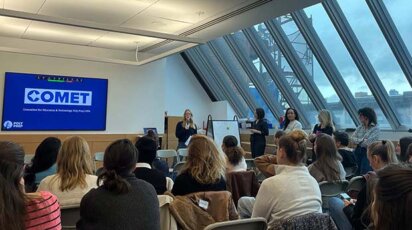News
Lunch & Learn Workshops: A Space for Students to Discuss Racism
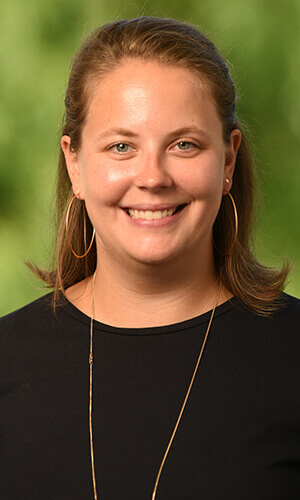
Following the murder of George Floyd, faculty and students led Lunch & Learn Workshops on June 9 to give Grades 7-12 students and faculty a space to discuss racism.
Lunch & Learn is a new initiative, said History Department Chair Maggie Moslander, “developed in response both to student interest in these topics and to the need to help our community understand the historical roots of systemic racism in the United States and its contemporary manifestations.” Moslander said they will continue in the next academic year.
Students were encouraged to drop in to virtual workshops on the following topics:
- Reparations for African Americans: Why and How? (Facilitators: World Languages teacher Dr. Angela Gittens and History Department Chair Maggie Moslander)
- Sustaining Social Movements (Facilitators: Makieda McKenzie ’21 and Head of Upper School Sarah Bates)
- Policing in America: Current Issues and Alternative Models (Facilitator: History teacher Elaine Levia)
- Race and Education (Facilitators: Katie Futterman ‘20, Olivia Hurley ‘20, Dean of Student Life Alex Davis, Director of Diversity, Equity, and Social Justice (DESJ) Motoko Maegawa)
- White Flight: Then and Now (Facilitators: Assistant Head of School, Academics Michal Hershkovitz and History teacher Elijah Sivin)
- “I’m not racist and I’m not privileged so how can you say I have white privilege?”: An Introduction to the Concept of White Privilege (Facilitator: History teacher Dr. David Reid)
- Healthcare in Communities of Color (Facilitator: Science teacher Amy Hao)
“These workshops can be replicated to address other important issues like race, gender, equity, immigration, climate and give students the chance to be introduced to something they hadn’t known about before and leaving them with a little bit of knowledge and the resources to learn more about that issue.”
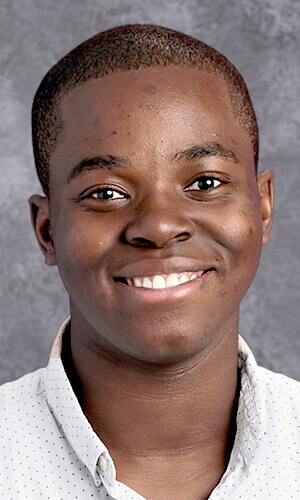
Ryantony Exuma ’22 took part in the Reparations for African Americans workshop, which included 16 participants. “In many ways, the workshop was almost like a class in that we learned about an important topic, discussed possible perspectives, and brainstormed ways of addressing the issue,” Ryantony said. “We spent about 20 minutes out of 45 discussing the different ideas and views on giving reparations to African Americans. We pointed out the pros and cons of certain ideas and expressed what we thought the end goal of reparations should be.”
“The Lunch & Learn workshops at Poly are a great way of addressing a multitude of issues,” he said. “These workshops can be replicated to address other important issues like race, gender, equity, immigration, climate and give students the chance to be introduced to something they hadn’t known about before and leaving them with a little bit of knowledge and the resources to learn more about that issue.”
Dr. Gittens dedicated the talk to those African Americans who died violently at the hands of oppressors and to those African descendants who worked on the land and built the economy of the U.S., but who also had the land stolen from them.
Moslander said the workshop on Reparations began with “a presentation to help attendees understand the long history of the United States’ economic disenfranchisement of African Americans, beginning with the institution of slavery, carrying through Reconstruction with President Johnson’s decision to reverse reparation policies carried about by Gen. Sherman, continuing with the institution of sharecropping and the Jim Crow regime in the South, and finally to the Fair Housing Administration’s policy of redlining and how the U.S. government’s housing policy denied African American families the opportunity to own homes and, therefore, create and pass down wealth.”
“Students and faculty came with different levels of knowledge,” Moslander said, “and I most appreciated their openness to new and surprising information and willingness to grapple with this difficult history.”
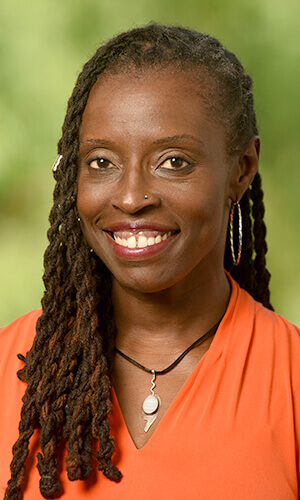
“Students asked thoughtful questions about possible approaches to reparations policies,” said Moslander, “and felt strongly that reparations were not just economically necessary, but also necessary in that they would constitute an acknowledgment by the United States as a country of the moral and economic wrongs committed against African Americans throughout our history. Gabby Perry’s ’22 question about how we should determine which black Americans receive reparations—should it only be for descendants of enslaved people, or any black American victimized by discriminatory policies—has stayed with me!”
“Students were already aware of other groups of people who had been treated poorly in the U.S. due to systemic biases, but who received reparations,” said Dr. Gittens. “It was great hearing them share this information as a way of backing the need to demand reparations to African Americans.”
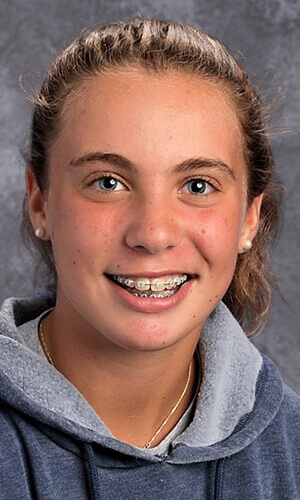
From the discussion, Katie Dolin ’24 said she “learned a lot more about the history of land being stolen from African Americans in the context of the relevance of those events in our current country. In the past, these events had been brought up, but were often not later acknowledged as being the reason for the impossibility of intergenerational wealth in black families right now in America.” She added, “I was able to make a few points, but I also just needed to listen to the different perspectives present in the conversation to advance my understanding of reparations for African American people.
In the White Privilege workshop, Dr. Reid told “the story of how I myself came to learn—far too late in life—what white privilege is, how it works, and what it does. I wasn’t surprised that the student knew about white privilege already, but I was a little surprised to hear that they had spoken about it to friends and family, as most white people don’t like discussing whiteness with the white people in their lives.”
Dr. Reid said he thought this type of discussion was vital if Poly want to be “an anti-racist school,” and should be “a major part of our curriculum.”
Director of DESJ Motoko Maegawa said Katie Futterman ’20 and Olivia Hurley ’20 opened the discussion about Race and Education by establishing conversation norms and then sharing the summaries of their Senior Plan research and presentations, both which centered on race in education. From there, they posed a question to the full group: Consider your own schooling experience. “When did you first have a teacher of a different racial/ethnic identity from your own?”
Katie Futterman said, “At the beginning of the conversation I was nervous because it was so silent and no one was really answering the questions. However, I eventually realized that it was because our questions were so important. When we asked about having teachers of color, they were silent because they struggled to think of when, or even if, they had one. The silence stuck with me. I think the reflection was really important.”
“Discussions are one of the best ways to learn about other people’s experiences and critically think about our own.”
“Poly does a fairly good job of holding conversations,” Katie Futterman said, “but this could always be improved. Discussions are one of the best ways to learn about other people’s experiences and critically think about our own.”
Recent Middle School graduate Katie Dolin agreed, “I loved the Lunch & Learn workshop! I really like how specialized they are and I think that the quality of them being so direct prepares us for a successful conversation. I would love to have a workshop on our prison system. I think it would be a great place to receive more perspectives.”
Afterward, Michal Hershkovitz said the sessions “were a triumph of collective engagement and learning! My heartfelt gratitude to those of you who facilitated, to Ms. Moslander for organizing, and to everyone who joined in hopes of participating in these illuminating discussions.”

